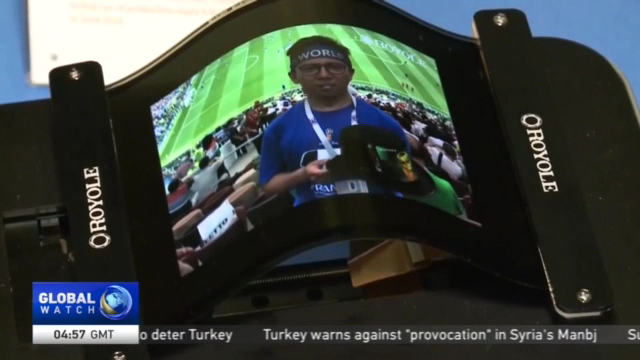
13:56, 29-Dec-2018
2018 in Tech: Industry's biggest developments of the year
Updated
12:56, 01-Jan-2019
04:02

It's been a busy year for technology. Some say the sector took a leap forward, while others say a number of mishaps and controversies set the industry back. CGTN's Mark Niu looks at the biggest tech developments of 2018.
Robots that can stack boxes, do backflips and run out in the open. This year, robots combined with artificial intelligence got smarter and to many creepier.
DENNIS HONG ROBOTICS & MECHANISMS LABORATORY "For my lab, AI is not about self-consciousness and those kind of things but rather for us, AI is more about autonomy. But in the general public when you say AI, people think about robots self-aware, Terminator kind of thing. That has a long, long way to go."
But some, including academics, warn that more attention needs to be paid to ethics. Technology ethics professor Brian Patrick Green says that on a scale of 1 to 10, with 10 being most concerned, he rated his worry over the future of robotics and artificial intelligence at an eight or nine.
BRIAN PATRICK GREEN, DIRECTOR TECHNOLOGY ETHICS, SANTA CLARA UNIVERSITY, CALIFORNIA "The world already has plenty of problems in it. And AI and robotics and machine learning technologies are going to take the problems we already have and amplify them."
Some of the simplest technologies also took investors on a wild ride. Rentable electric kick scooters caught on so fast, that the first U.S. startup out of the gate - Bird-earned a two billion dollar valuation in four months. But cities struggled to balance the convenience of safety with keeping the streets clean. Many places, like San Francisco, banned the scooters temporarily while taking the time to decide on a few winners that would be granted permits to operate legally.
Hitting speed bumps seemed to be a way of life this year for social media giant Facebook. The firm Cambridge Analytica, which did work for the Trump presidential campaign, developed an app for Facebook that allowed it to gain personal data from 87 million Facebook users.
MARK ZUCKERBERG CEO, FACEBOOK "We didn't take a broad enough view of our responsibility and that was a big mistake. It was my mistake, and I'm sorry."
MARK NIU SAN FRANCISCO "This year, Facebook was also accused of sharing user personal data with more than 150 companies long after it said it had stopped doing that. And after a U.S. Senate report claimed Russia's Internet Research Agency used Facebook to send propaganda to black voters in the 2016 U.S. presidential election, a leading civil rights organization called for a weeklong national boycott of Facebook."
Another tech billionaire who courted controversy throughout the year was Tesla CEO Elon Musk. He smoked marijuana - now legal in California -- on a radio show and came under fire after tweeting "I am considering taking Tesla private at 420 dollars. Funding Secured." The U.S. Security and Exchange Commission came down hard on Musk for having not discussed specific deal terms with any potential financing partners - forcing him to step down as Tesla chairman of the board, though he remains CEO.
TIM BAJARIN PRESIDENT, CREATIVE STRATEGIES "I still think he's a visionary. I think people question how some of his views go beyond his genius."
In September, Apple unveiled its new iPhone 10 models, starting at a base price of a thousand dollars and a slightly cheaper model called the XR. But shortly after, other smartphone makers took much greater risks. Samsung showed off its Infinity Flex display. But just days earlier, it was beaten to the punch, by Shenzhen and Silicon Valley-based startup Royole.
BILL LIU FOUNDER & CEO, ROYOLE "You can actually turn around. They can tell you are using the other side, so this is a 2nd phone. We're using dual SIM cards. So there's basically two smartphones together in this FlexPai and a tablet together."
With more companies expected to introduce foldable phones in 2019, it will be up to consumers to decide whether they're happy having one, two or three screens right inside their pocket.
Mark Niu, CGTN, San Francisco.

SITEMAP
Copyright © 2018 CGTN. Beijing ICP prepared NO.16065310-3
Copyright © 2018 CGTN. Beijing ICP prepared NO.16065310-3